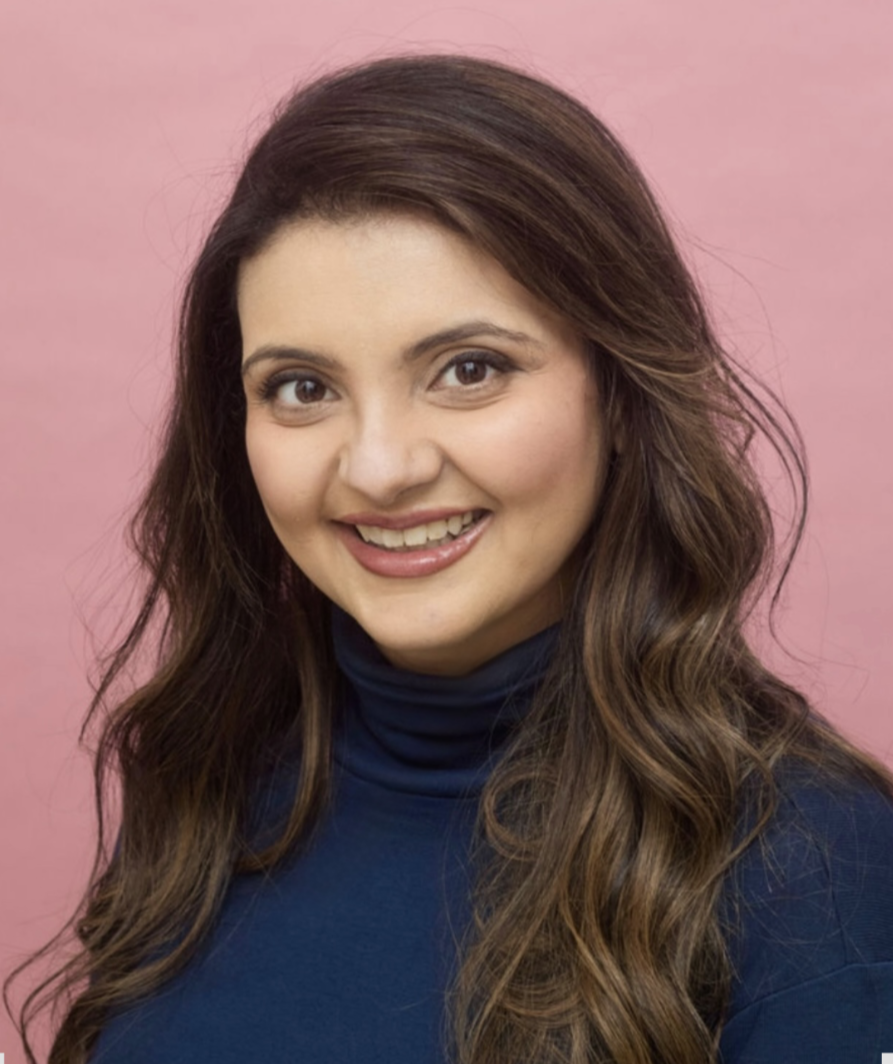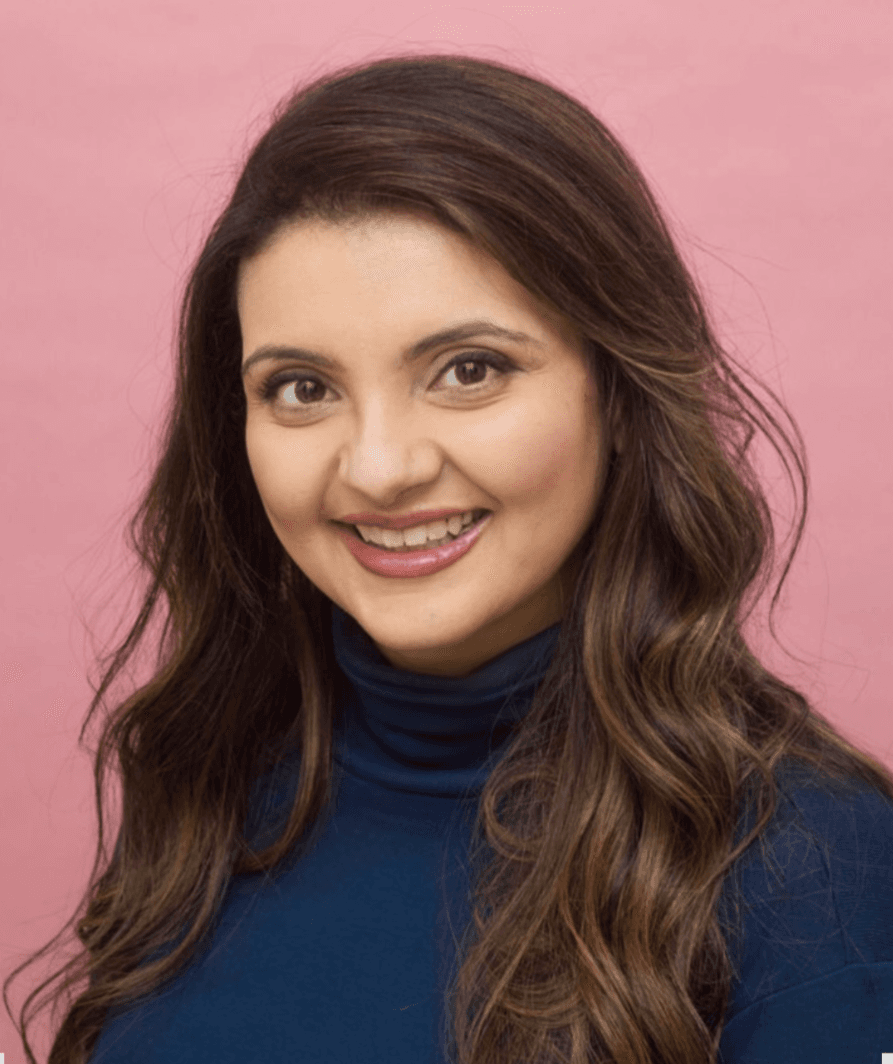
Irfa Samnani
She/HerMEd
註冊心理治療師(見習中)
 English
English
Irfa's
Warm video welcome

與我經歷治療的體驗
Walking into therapy with me, you’ll find a space that is soft, steady, and deeply attuned to you. My approach is warm, collaborative, and thoughtful, gently guiding without rushing, offering structure when it's needed, and always honouring your pace. Whatever you're navigating, I bring a calm and compassionate presence that helps you feel safe to show up just as you are. Together, we’ll make space for the complexity of your experience, your strength and your struggle, your grief and your growth. I blend evidence-based approaches like CBT, DBT, EMDR, ACT, and CFT with a deep respect for your lived experience, culture, and values.
專長領域
這些是我具備專業訓練或豐富臨床經驗的核心專長。

焦慮 (Anxiety)

眼動脱敏與再處理療法 (EMDR)

圍產期心理健康 (Perinatal Mental Health)

慢性疾病 (Chronic Illness)

關係問題 (Relationship Issues)

殘障 (Disability)
我亦能在以下其他領域提供專業支援,歡迎有相關需要的客戶與我聯繫。

育兒 (Parenting)

應對技巧 (Coping Skills)

悲傷與喪失 (Grief & Loss)

自尊與自我價值 (Self Esteen & Self-worth)

辯證行為治療 (Dialectical Behavioural Therapy (DBT))

自信與界限 (Assertiveness & Boundaries)

關係依附取向治療法 (Relational Attachment Oriented Approach)

醫療創傷 (Medical Trauma)

體驗導向與過程導向 (Experiential And Process Oriented)

照顧者壓力 (照顧者之PLWD) (Caregiver Stress (caregivers Of Plwd))

焦慮與擔憂 (Anxiety & Worry)

罪疚與羞恥 (Guilt & Shame)

文化謙遜且情境敏感 (Culturally Humble And Contextually Responsive)

伴侶治療(經歷高衝突,其中一或多位伴侶具有PTSD或CPTSD症狀) (Couples Therapy (experiencing High Conflict, One Or More Partners Are Experiencing Symptoms Of PTSD Or CPTSD))
治療手法
這些是我主要的治療手法,均接受過專業訓練或有豐富臨床經驗:

眼動脫敏再處理 (EMDR)
Helps my clients heal from trauma. It uses eye movements or gentle stimulation while you think about a troubling memory, helping your brain process it in a healthier way. EMDR can reduce the emotional impact of past events so they don't feel as overwhelming. I offer this for birth trauma as well.

接受承諾療法 (Acceptance Commitment Therapy)
ACT helps clients navigate difficult thoughts and emotions with more openness and self-compassion. It supports my clients in letting go of struggle, connecting to their values, and taking meaningful steps toward a more fulfilling life even with pain present. It is about accepting and connecting.

情緒聚焦療法 (Emotion-focused Therapy)
EFT helps clients explore emotions with depth and compassion. By understanding and transforming emotional patterns, clients develop a stronger sense of self, improve relationships, and begin to respond to life from a place of clarity and authenticity.

內在家庭系統 (Internal Family Systems)
IFS helps clients explore the different “parts” within them like the inner critic, the people-pleaser, or the wounded child with curiosity and care. By building a relationship with these parts, clients find healing, balance, and a deeper connection to their true self.
當臨床上適用時,我也能靈活應用這些實證為本的治療手法:

反壓迫治療 (Anti-oppressive Therapy)

短程解決取向治療 (Brief Solution-oriented Therapy)

合作治療 (Collaborative Therapy)

整合治療 (Integrative)

認知行為療法 (Cognitive Behavioural Therapy (CBT))

戈特曼伴侶療法 (Gottman Couples Therapy)

正念治療 (Mindfulness-based Therapy)

辨證行為治療 (DBT)

敘事治療 (Narrative Therapy)

以客為本 / 羅傑式療法 (Client-centered / Rogerian Therapy)
服務對象與文化專長
以下是我具有專門經驗與文化理解能力的服務對象與背景:
我所服務的群體

分娩期 (孕期、產後及轉變為父母階段)

專業人士

父母

伴侶

面臨慢性疾病或疼痛的人
我熟悉的文化社群

有色族裔

南亞人

第一代移民 與 第二代移民

新來者與難民

第一線救援人員
專業資格

註冊心理治療師(見習中)
- 註冊編號:19427
College of Registered Psychotherapists of Ontario
教育背景

Master of Education
University of Toronto, Canada
專業培訓
EFCT
ICEEFT
EMDR
EMDRIA-Approved EMDR Training with Suzanne Rutti
Gottman Level 1
The Gottman Instititue
執業地點與服務項目
常見問題
您知道嗎?

I’m a lifelong learner at heart. I love deepening my knowledge in relational work, trauma, perinatal mental health, and culturally responsive therapy.

My path to becoming a therapist was shaped by personal experience navigating postpartum struggles, chronic illness, and the complex cultural dynamics.

I believe healing happens in spaces that are non-judgmental, affirming, and deeply attuned. My style is warm, thoughtful,& collaborative not rushed.


As a South Asian woman and a disabled therapist, I hold space for the complex ways culture, family roles, and identity shape our emotional world.

